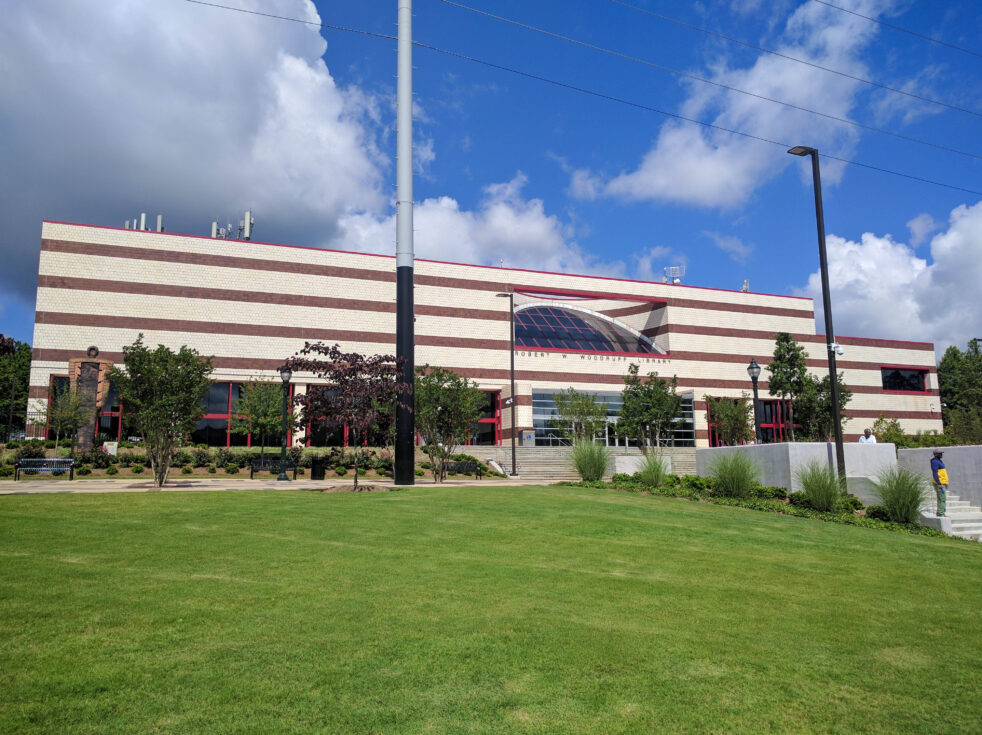This past summer, the National Science Foundation (NSF) awarded Tech’s Office of Information Technology (OIT) a grant for $995,500 to work with historically Black colleges and universities (HBCUs) in Atlanta and Alabama to improve several institutions’ computing and network connectivity.
These upgrades intend to benefit the research-conducting capabilities at these institutions through inter-institution tools and database sharing, stronger cloud connection and facilitating faster computing among other benefits.
The principal investigator (PI) on the grant proposal was OIT’s Chief Operating Officer (COO) Cas D’Angelo, who is very excited about this project, saying that “it’s been a personal mission of mine to make this happen.”
Clark Atlanta University, Morehouse School of Medicine (MSM), Spelman College, Tuskegee University and the Robert W. Woodruff Library were all included in the initial proposal submitted by the OIT.
Morehouse College, separate from the MSM, was added to the list of grant beneficiaries in a later supplemental award.
With the exception of Tuskegee University, all of these entities belong to a historical and contiguous consortium of African American higher education institutions in southwest Atlanta called the Atlanta University Center (AUC) Consortium.
D’Angelo cites several benefits that come from these institutions being connected on the same high-speed network, emphasizing “it can be to connect to an instrument at another campus — so, there are all kinds of scientific instruments that are on the network. It could be to get to a data store that’s on another network. It could be to get to compute [computational resources] that’s on another network.”
The benefits of these resources are not targeted solely at researchers — science-based learning outcomes are also a target for these enhanced resources.
In addition to D’Angelo serving as PI for the project, each of the institutions has a designated co-PI: Charles Cooper from Clark Atlanta University, Reggie Brinson from MSM, John Wilson from Spelman College and Abraham George from Tuskegee University. Greg Pride serves as the relevant personnel from the Woodruff Library.
Each of these institution leads brings their own staff to the project. In addition, for the project’s grant proposal, each participating institution also had to contribute at least one “science driver,” a designated researcher or educator working in the scientific domain and able to describe specific ways their work stands to be enhanced by the network upgrades proposed in the grant.
D’Angelo estimates that “on the order of 10 science drivers were recorded as part of the project,” and further said “there were some more that we just didn’t have room for.”
Those running the project intend to revisit any noted science drivers, included in the proposal or not, and follow up with them if their work has measurably benefitted from the upgraded network capabilities.
Southern Crossroads, or SoX, is a Tech-associated network infrastructure driver for the southeast United States, and cites that its current network-supported participants are around twenty institutions of higher education and half a dozen other organizations, including the Center for Disease Control and Prevention (CDC). SoX is serving as the primary private facilitator for this newly funded project.
Describing SoX in detail, D’Angelo said that, “Southern Light Rail is the corporation, and SoX, or Southern Crossroads, is the project,” and that, “for all intents and purposes, Southern Crossroads is the majority of what Southern Light Rail does, and Southern Light Rail is an affiliated corporation of Georgia Tech.”
D’Angelo, in addition to his position in the OIT, also serves as the current president of Southern Light Rail. The project is on a two-year timeline for completion.
“There’s an annual report that’s due to the NSF every year of the project, and then there’s a final report when we close it out,” D’Angelo said.
“The award for the fiber infrastructure is going to be handled by Georgia Tech, because that’s benefiting multiple different universities,” D’Aneglo said.
For the equipment going onto the campuses themselves, “the funding for that goes to the co-PIs for the award,” D’Angelo said, referring to the individuals named previously from the four schools initially included in the proposal, with the Woodruff Library and Morehouse College being
allocated differently.
“Because of some limitations the NSF has on how many sub-awardees we can have, we just had to put the equipment for that on the Georgia Tech award, but the equipment will be installed on their campuses and operating for their benefit,” D’Angelo said.
Speaking of the member institutions of the AUC Consortium, D’Angelo said that “I’ve been trying to find a way to get them connected to this network for a long time, so it’s been a personal mission of mine to make this happen. I’m excited about it.”
More information about this initiative can be found at gtri.gatech.edu/hbcu.
